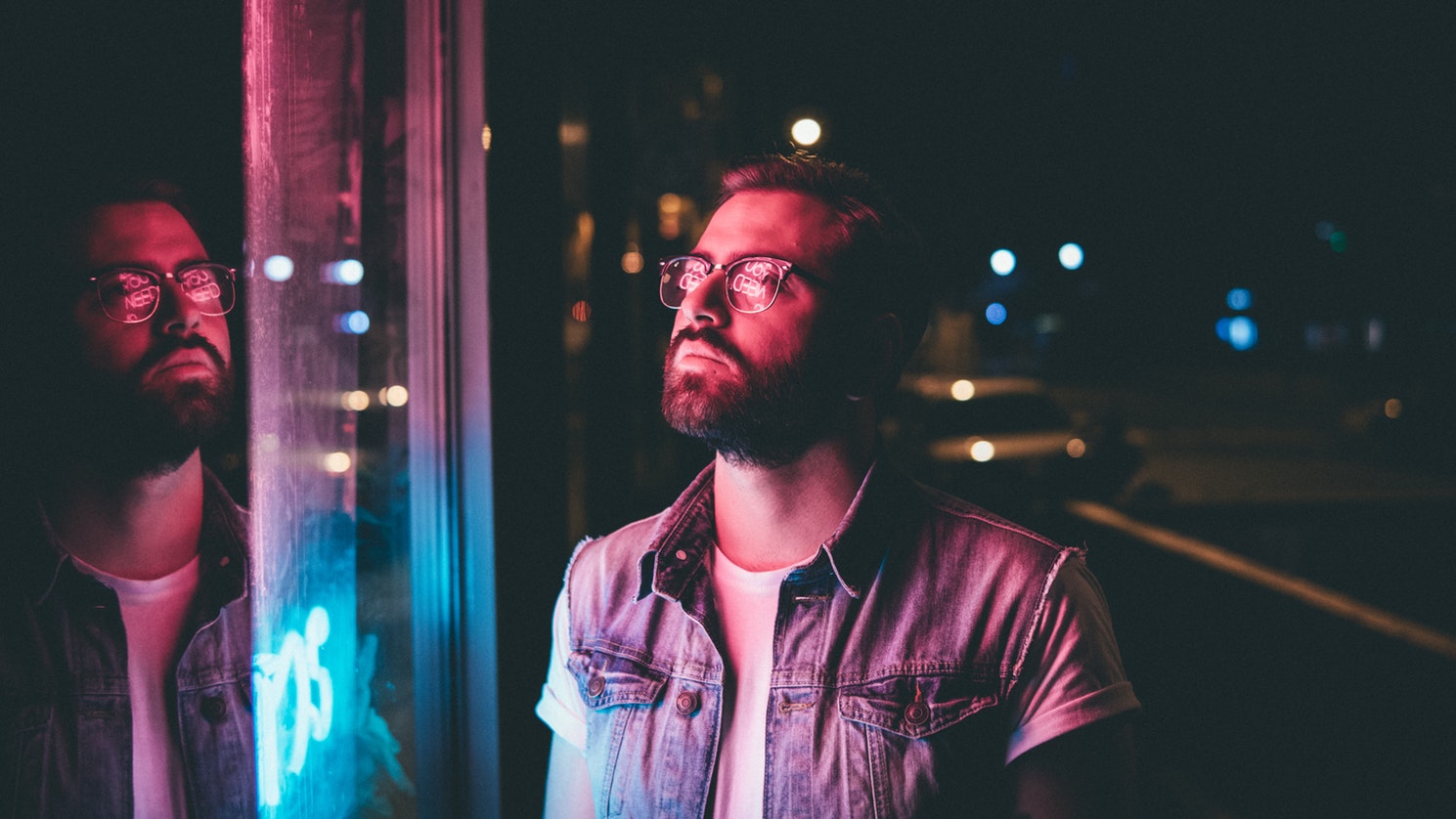
Recently, I was walking in the park near my home. It was a beautiful day outside: sunny, warm, blue sky.
But … inside … I felt rotten.
I had slept poorly the night before. I was going through some difficulties at work. My brain was tied into a million worried knots.
My reason for going to the park was to relax. I wanted to reconnect with the simplicity of nature. I needed to breathe and reboot. My plan was to be alone, without words, without other people, and just be with the trees and allow my emotions to flow.
However, when I began to walk the myriad paths through the sycamore and oak, I began to pass by many people from my small town. It was strangely crowded at the park that day. Apparently, my idea to take advantage of the gorgeous afternoon in the sunshine was not my idea alone!
As I passed person after person, I realized, suddenly, that I been forcing myself to smile at all of them. I had been putting an artificial tone of cheer in my voice and had been saying “hello!” and “good afternoon!”…when all I really wanted to do was cry.
I wanted to feel and really allow the sadness. I didn’t want to be fake. I didn’t want to smile.
But I was fake that day. The smiles and the hellos were forced.
Why did I feel an obligation to be cheerful? Why had this happened?
THE BEAUTIFUL DESIRE TO HELP
If you are a naturally giving or naturally upbeat person, you may wish you could smile all the time. Of course! It’s lovely to want to smile.
If you are a caregiver, parent, healer, therapist, minister, motivational speaker, teacher, coach, or helper of any kind, it is your natural tendency to want to uplift others. You want to make this world a better place. You want to bring the light. That is so awesome!
And … yet … we can get ourselves into tricky situations when we fail to honor our authenticity. When we force ourselves to smile or try to help too much—at the expense of our own needs.
I’ve seen it all too often. The genuine desire to be a beacon of light becomes, unfortunately, the mask we feel obliged to wear 24/7. It becomes a heavy burden, a façade. Slowly, over time, we begin to live solely for others, instead of acknowledging that we ourselves sometimes need help too.
Sometimes we are sad, too.
GIVING YOURSELF PERMISSION TO BE REAL
My dear friends, you don’t always have to smile.
Sometimes you have a bad day. Sometimes you feel like shit. Sometimes you don’t get enough sleep or you catch a cold. Sometimes you are triggered by this crazy world: politics, taxes, paying your bills, the cruel treatment of children or animals.
You don’t always have to smile.
You don’t always have to shine.
For example, if you’re feeling lousy today and you’ve got to go to the grocery store, cut yourself some slack. Visualize a protective bubble of light around yourself and just breathe. Love yourself. Go to the store and don’t worry that you don’t have the energy to do what you normally do, such as make abundant eye contact with the cashier or cheerfully chat with your neighbor.
If you’re feeling low, it’s okay to turn off your “empathy button” for a while. Be in your own world. Give yourself permission to be exactly who you are in this moment: empty, flat, tired, and sad.
You don’t always have to smile. You don’t always have to be shiny. You don’t always have to be the perfect embodiment of joy, confidence, peace, and happiness. You don’t always have to bring the light. You don’t always have to help.
THE WONDERFUL TEACHINGS OF JIM CAREY
The comedian Jim Carey is a wonderful example of someone who has realized the value of being genuine.
In recent interviews and speeches, Carey talks a lot about letting our masks drop. Having the courage to set them down and be real.
He reminds us the value of being raw and authentic, genuine and vulnerable. In order to fully step into our beautiful humanity, it is essential to intentionally show our weakness to others. By allowing ourselves to be seen as “imperfect,” then we give others permission to relax and do the same. In this way, more compassion comes into the world. And more realness.
Carey’s message is the same as countless sages throughout history. He realized that only through daring to be vulnerable can our true light shine through.
The true light of God, Divinity, the Universe (whatever you want to call it) is within us—but if we pretend to be feeling that light when we are not, we are only hurting ourselves.
Sometimes, what we need to do is cry.
Sometimes, what we need to do is reach out to a trusted friend and say, “I need help—can we get some tea and talk?”
Sometimes we need to go to our Mum and say “Hey Mum, I’m scared. Can I have a hug?”
Sometimes we need to call in sick to work.
Sometimes we need to say “no” or let someone down in order to take care of ourselves.
Carey tells us about how, early in his career, while he was striving to become famous, he not only played the roles in the scripts, but he also played a role in his larger life: that role was called “Jim Carey”! But, he didn’t realize that he was doing this until he began to spiritually awaken.
In his awakening (the unraveling of his ego), he realized that in order to continue his evolution as a soul, he must drop even the role of Jim Carey! He must dare to let others see him, truly see him, moment to moment.
Who is underneath the mask, the persona?
When we make the choice to step outside the boundaries of the tense, anxious, ego-self (even if only for a few minutes, even if only for a little bit), we will find a free-flowing relaxation. A loosening. A delicious unravelling. A peace. And we will realize, incredibly, that we are not limited to form.
We are boundless.
What is underneath the mask is what the mystics have always spoken of. The collision of this moment and the infinite. The conflagration of spirit and emptiness. The person and the being. The Tao. The way. The everything.
Jim Carey dares us to be authentic.
And so do I.
What I learned in the park that day was a turning point in my life.
I realized that I needed to take care of myself first. And what that sometimes means is having the courage not to smile. To just feel and honor my own sadness. To just be human.
Even the inspiration of seeing yourself as a healer or a helper can become a false idol, a mental image. If we believe we “are” that thing that we do—even if it’s positive such as being a teacher or a nurse or a minister or whatever—then we will ultimately drown in that form. We will ultimately sink, into the darkness of confusion and untruth.
If we can relax our human role identity, it is then, paradoxically, that we can allow the full range of humanness—all our sometimes seemingly crazy, chaotic emotions—to emerge and be truly felt.
THE BEAUTIFUL TEACHINGS OF BRENÉ BROWN
Another person who has helped bring these lessons of authenticity to the light of our collective consciousness is Brené Brown.
In her infamous TED talk “The Power of Vulnerability” (with over seven million views on Youtube), she teaches how being vulnerable is a radical act of courage that can change the world. She shows how vulnerability is ultimately an empowering act: one we can intentionally choose in order to liberate ourselves from fear and step more fully into our joy.
Instead of reaching for that banana nut muffin and a beer, as she reminds us, do we have the courage to really feel what we are feeling? Do we have the courage to just breathe and be, instead of rushing to numb ourselves with food, drugs, or other addictive behaviors?
Can we find the courage within ourselves to reach out for help and be honest with those we love about our challenges?
Can we be honest about our sadness and our fears?
Brown’s questions are potent and transformative. In a world that’s waking up, it’s exactly what we need to hear.
She helps me remember that I don’t always have to smile. Sometimes I can be sad, and that’s okay.
THE CONTINUING CONVERSATION
This post has two parts, my friends. Please tune in next week, as I explore this conversation further.
In the meantime, I’ll leave you with two simple questions:
Do you ever feel pressured to smile? Why is that?
